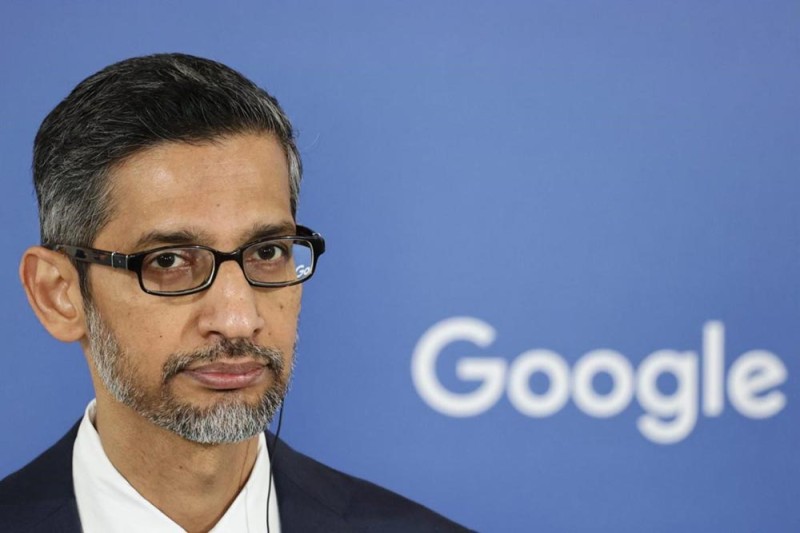
谷歌(Google)再度助力比特币矿商达成合作。上周四,Cipher Mining宣布将其位于得克萨斯州科罗拉多城的数据仓库租赁给一家人工智能计算初创公司。该比特币矿商预计,此合同在最初10年期限内将为公司带来30亿美元净收入,若达成两次为期五年的延期,收益将达70亿美元。
Cipher Mining与总部位于英国的人工智能计算初创公司Fluidstack达成这笔交易。谷歌已同意为这家初创公司14亿美元的租赁负债提供担保,作为回报,谷歌将获得Cipher Mining 5.4%的股权。
Cipher Mining首席执行官泰勒·佩奇(Tyler Page)在声明中表示:“我们认为这笔交易为高性能计算领域合作首开先河。”高性能计算是行业术语,通常指代人工智能领域。
根据该交易,Cipher Mining将改造其位于得克萨斯州的比特币挖矿数据中心,转而提供人工智能服务,并可能扩建现有园区以满足不断增长的需求。
这并非谷歌首次助力比特币矿商达成交易。8月,TeraWulf宣布已达成一项37亿美元的交易,将纽约西部数据中心租赁给Fluidstack。谷歌同意为该交易提供18亿美元担保,并获得了TeraWulf 8%的股权。
从比特币到人工智能
谷歌与Cipher Mining和TeraWulf展开合作之时,恰逢人工智能开发者竭力谋求算力储备,以便在这场行业军备竞赛中保持竞争力。周一,OpenAI宣布与芯片开发商英伟达(Nvidia)合作建设人工智能数据中心,其耗电量将相当于纽约和圣地亚哥两市耗电量之和。
但OpenAI和谷歌等人工智能巨头不仅寻求传统芯片制造商的支持,还向比特币矿商寻求助力。
比特币挖矿指通过解决复杂数学难题处理加密货币持有者之间的交易,并向市场投放新比特币的过程。最大的比特币矿商在大型数据仓库中部署专用计算机集群,竞相获取新发行的加密货币。
尽管人工智能数据仓库采用不同类型的服务器且需要特殊网络支持,但加密货币企业已注意到比特币挖矿与为人工智能提供动力之间的相似之处。
以CoreWeave为例,该公司从以太坊挖矿转型为人工智能数据仓库。其客户包括OpenAI、谷歌、Cloudflare及一系列大型科技公司。
其他比特币矿商也试图复制CoreWeave的转型路径,其中包括Core Scientific——CoreWeave已于七月同意以90亿美元收购该公司。但Core Scientific股东随后对交易提出异议,认为收购价格低估了这家比特币矿商的价值。(*)
译者:中慧言-王芳
谷歌(Google)再度助力比特币矿商达成合作。上周四,Cipher Mining宣布将其位于得克萨斯州科罗拉多城的数据仓库租赁给一家人工智能计算初创公司。该比特币矿商预计,此合同在最初10年期限内将为公司带来30亿美元净收入,若达成两次为期五年的延期,收益将达70亿美元。
Cipher Mining与总部位于英国的人工智能计算初创公司Fluidstack达成这笔交易。谷歌已同意为这家初创公司14亿美元的租赁负债提供担保,作为回报,谷歌将获得Cipher Mining 5.4%的股权。
Cipher Mining首席执行官泰勒·佩奇(Tyler Page)在声明中表示:“我们认为这笔交易为高性能计算领域合作首开先河。”高性能计算是行业术语,通常指代人工智能领域。
根据该交易,Cipher Mining将改造其位于得克萨斯州的比特币挖矿数据中心,转而提供人工智能服务,并可能扩建现有园区以满足不断增长的需求。
这并非谷歌首次助力比特币矿商达成交易。8月,TeraWulf宣布已达成一项37亿美元的交易,将纽约西部数据中心租赁给Fluidstack。谷歌同意为该交易提供18亿美元担保,并获得了TeraWulf 8%的股权。
从比特币到人工智能
谷歌与Cipher Mining和TeraWulf展开合作之时,恰逢人工智能开发者竭力谋求算力储备,以便在这场行业军备竞赛中保持竞争力。周一,OpenAI宣布与芯片开发商英伟达(Nvidia)合作建设人工智能数据中心,其耗电量将相当于纽约和圣地亚哥两市耗电量之和。
但OpenAI和谷歌等人工智能巨头不仅寻求传统芯片制造商的支持,还向比特币矿商寻求助力。
比特币挖矿指通过解决复杂数学难题处理加密货币持有者之间的交易,并向市场投放新比特币的过程。最大的比特币矿商在大型数据仓库中部署专用计算机集群,竞相获取新发行的加密货币。
尽管人工智能数据仓库采用不同类型的服务器且需要特殊网络支持,但加密货币企业已注意到比特币挖矿与为人工智能提供动力之间的相似之处。
以CoreWeave为例,该公司从以太坊挖矿转型为人工智能数据仓库。其客户包括OpenAI、谷歌、Cloudflare及一系列大型科技公司。
其他比特币矿商也试图复制CoreWeave的转型路径,其中包括Core Scientific——CoreWeave已于七月同意以90亿美元收购该公司。但Core Scientific股东随后对交易提出异议,认为收购价格低估了这家比特币矿商的价值。(*)
译者:中慧言-王芳
Google has helped strike another deal with a Bitcoin miner. On Thursday, Cipher Mining announced that it was leasing a data warehouse it owns in Colorado City, Texas, to an AI computing startup. The Bitcoin miner projects the contract to net the company $3 billion over its initial 10-year term and $7 billion if two five-year extensions are exercised.
Cipher Mining struck the deal with Fluidstack, an AI computing startup based in the U.K. Google has agreed to backstop $1.4 billion in the startup’s lease obligations, and, in return, receive 5.4% in equity in Cipher Mining.
“We believe this transaction represents the first of several in the HPC space,” Tyler Page, CEO of Cipher Miner, said in a statement, referring to high-performance computing, an industry term that generally refers to AI.
Under the deal, Cipher Mining will repurpose its Bitcoin mining data center in Texas for AI services—and potentially expand its existing campus to accommodate increased demand.
This isn’t the first deal Google has helped broker a deal with a Bitcoin miner. In August, TeraWulf announced that it had struck a $3.7 billion deal to lease out a data center it owns in western New York to Fluidstack. Google agreed to backstop $1.8 billion of the deal and received 8% in TeraWulf equity.
Bitcoin to AI
Google’s tie-ups with Cipher Mining and TeraWulf come as AI developers look to amass more and more computing power to stay competitive in an industry arms race. On Monday, OpenAI announced a plan with the chip developer Nvidia to build AI data centers that would consume as much electricity as the entirety of New York City and San Diego combined.
But AI giants like OpenAI or Google aren’t just tapping established chipmakers. They’re also looking for help from Bitcoin miners.
Bitcoin mining refers to the act of solving complex mathematical puzzles to process transactions between holders of the cryptocurrency as well as introduce new Bitcoins into circulation. The largest Bitcoin miners own fleets of specialized computers in large data warehouses to compete for new tranches of the cryptocurrency.
While AI data warehouses have different servers and require different networks, the similarities between mining Bitcoin and powering AI haven’t been lost on crypto companies.
CoreWeave, for example, pivoted from mining the cryptocurrency Ethereum to building out AI data warehouses. Its customers include OpenAI, Google, Cloudflare, and a suite of Big Tech firms. The company went public in March and is worth about $65 billion, as of Thursday afternoon.
Other Bitcoin miners have tried to replicate CoreWeave’s pivot, including Core Scientific, which CoreWeave agreed to acquire in July for $9 billion. Core Scientific shareholders have since pushed back on the deal, arguing that the purchase price undervalues the Bitcoin miner.

